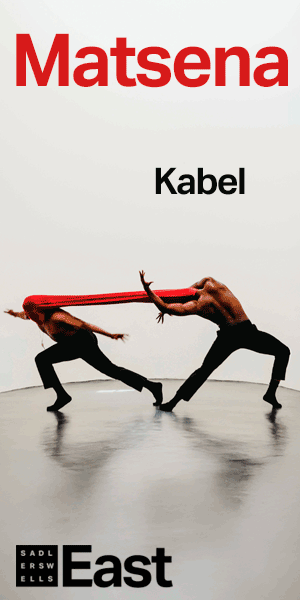
Symbolism is one of the great tools of theatre writers and the human mind in general.
From Genesis to Revelation; from Homer to Shakespeare; from Dahl to Rowling – our cognition has been shaped, constructed and moulded through symbolic reference and story-telling through metaphor. This has allowed us to grasp concepts out of our reach; make sense out of nonsense; survive the ‘unspeakable’; find faith in a hopeless space; make a way out of ‘no way’; to live a life outside ‘real life’. It also helps connect – through collective imagining – any story to any audience.
The Book of Grace uses several such symbols to connect us with its characters: one is a stark expression of hope (shorn of its proof) – the others are all capitulations to life’s restrictive shackles.
We first see ‘Vet’ (Peter De Jersey), a senior patrol officer at the border of the United States/ Mexico… digging a hole in the back of his garden. After describing his handiwork as a ‘deterrent’, he goes on to extol the virtues of his chosen workplace; seeming to almost fetishise the long expanse of wall that protects those on the ‘right side’ of the border from the gathering hoards ‘who want what we have’.
His rhetoric is filled with paranoia and – most notably – a lack of compassion for those he views as ‘illegal’; the assumption being that all who wander into his path are illegitimate.
It’s no surprise that, when his son ‘Buddy’ (Daniel Francis-Swaby) arrives to see him for the first time in 15 years, he is treated like an escaped criminal; not with ‘open arms’, but with a pat-down.
‘Buddy’ seems initially to be hopeful that he might be able to ‘mend fences’ with his errant father, but soon becomes resigned to a having to take part in a less wholesome reunion.

In the middle of these two lions – or ‘snakes’, as they both refer to themselves – is ‘Grace’ (Ellena Vincent), Vet’s much younger wife. It is she who has maintained a relationship with Buddy through the years; sending him letters of hope and positivity, as well as money and a more recent invitation to the ceremony to celebrate his father’s long service as a border patrol guard.
Her world-view is to always look on the bright side. Which is why, in times of stress – or during the near-constant abuse at the hands of her husband – she writes and draws stories of hope and happiness in her journal: the eponymous ‘book of Grace’.
There are several allusions to Vet having destroyed his first wife’s life, as well as that of his son’s (in ‘unspeakable’ fashion); a pattern he seems set to replicate. Meanwhile, ’Buddy’ – an ex-military man himself – seems to have his own secrets, and it soon becomes a question as to whether present-day ‘grace’ can compensate for past sins of the father, in order to create a future for the next generation.
All three performances are well-measured. Francis-Swaby is likeable, vulnerable and ever-so-slightly off-kilter as ‘Buddy’. Vincent’s warm, good-natured ‘Grace’ is undercut with an air of perpetual sadness; her sweet singing voiced eventually reduced to a caged, guttural rasp. However, it is De Jersey who really ignites. His ‘Vet’ is a dark, ill-intentioned ball of misanthropic rage.
Each utterance is a cold rebuke to the world… and all within it. His quest for control – order – is his only freedom from the demons he has collected and placed atop the fence he now guards. It is a wonderful performance; dark and committed… primal, even.
The Arcola Theatre – with its differing sight lines and divergent pathways – can be a tough space for a production to navigate. The cast and crew deal with this by ‘leaning in to the disconnect’; amping up the (silent) threat posed by certain characters; keeping them inert, yet still visible; utilising the ‘space’ to incorporate humour and build suspense; ultimately, keeping the audience on their toes.
As well as Playwright Suzan-Lori Parks, commendations must also go to director Femi Elufowoju JR, lighting designer David Howe and composer/ sound designer Simon McCorry for making such good use of the space(s), and for bringing the piece to life on – and for – so many levels. Plaudits should also go to flight & intimacy director Kemi Durosinmi for supervising such intense and riveting physical performances.
This is an excellently performed and well-judged production.
The Book of Grace by Suzan Lori Parks is playing at the Arcola Theatre until 8 June 2024 See listing.






























